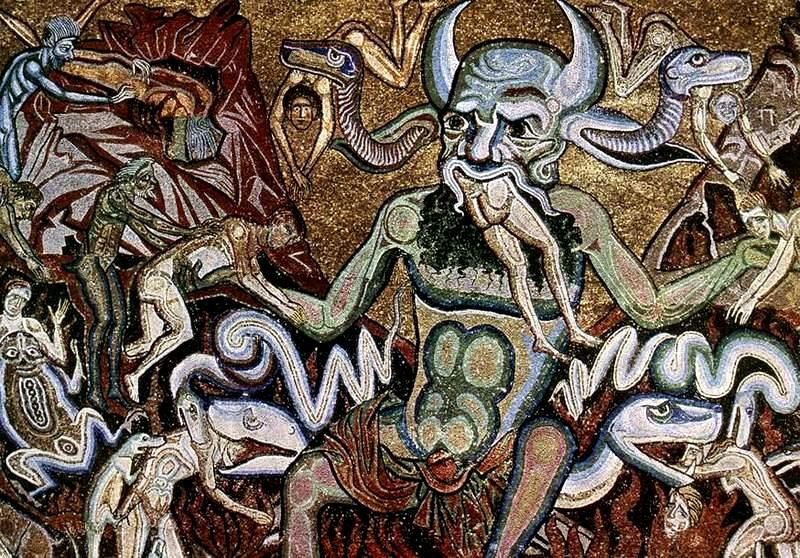
The Idea of Hell is The Treasury of Their Most Secret, Most Cherished Hopes
“An old monk on Mount Athos in Greece once told me that people rejoice in the thought of hell to the precise degree that they harbor hell within themselves. By which he meant, I believe, that heaven and hell alike are both within us all, in varying degrees, and that, for some, the idea of hell is the treasury of their most secret, most cherished hopes — the hope of being proved right when so many were wrong, of being admired when so many are despised, of being envied when so many have been scorned.
And as Jesus said (Matthew 6:21), “Where your treasure is, there will your heart be also.”
The above passage comes from an article written by philosophical theologian, David Bently Hart (DBH), and was recently published in the New York Times. The title of the article succinctly sums up its contents: “Why Do People Believe in Hell?”
DBH and the old monk he spoke with are not wrong here. I’ll just also add that, for many folks I’ve encountered (Calvinists in particular), the concepts of heaven and hell as expressed in conservative versions of white Evangelicalism are perfect examples of the Nietzschean will to power. Explicit first person cruelty, for Nietzsche, is often a sign that someone lacks power. It’s much more preferable to have someone indebted to us; having power over someone in this way extends our power (picture a military dictator or mob boss who has loyal, indebted followers).
So yeah, what better way to satisfy the desire for domination or mastery over others, oneself, or the environment then to project this will onto God? It seems natural that humans who feel powerless, small, scared, and weak (consciously or unconsciously; and in the case of the people I’m thinking of ((i.e. white Euro-American men who can’t identify or talk about their feelings)) it’s mostly unconscious) would create an all-powerful, authoritarian God who can dominate and punish others so they themselves don’t have to. Adherents to this conception of God can have their cake and eat it too: they get the crude satisfaction of hurting people directly by causing them psychological and emotional strife while also feeling a smug sense of fulfillment knowing that these unbelievers would of course be indebted to them for the kind act of helping to bring them closer to understanding the one and only “Truth.”
…
Art above: Coppo di Marcovaldo, Hell (ca 1225 – 1274, Mosaic, Baptistry, Florence)
0 Comments